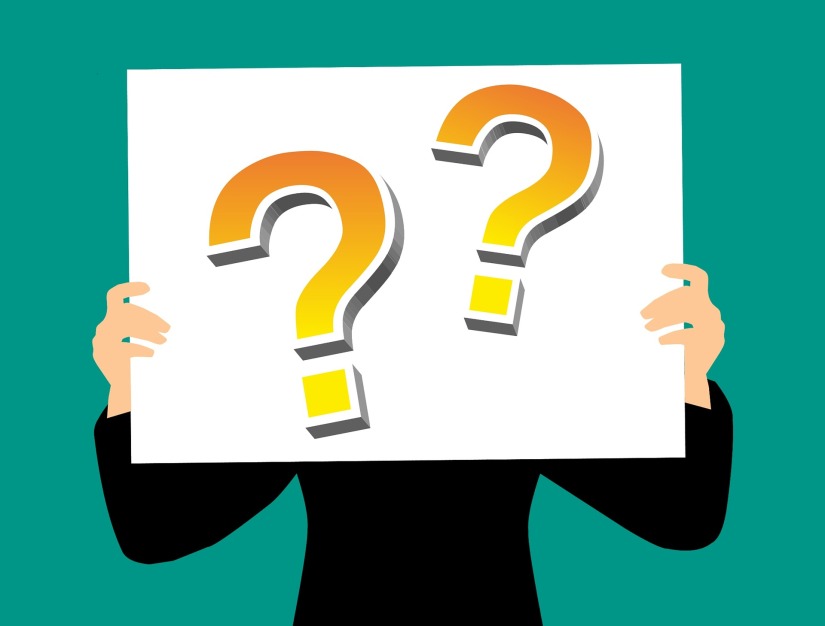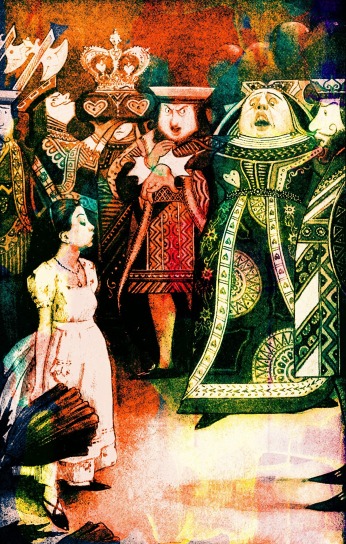
First of all, my apologies for the hiatus. Illness can really knock you out, am I right?
And with that question, I have oh so masterfully segued into the topic of today’s post. (Mwah ha ha!)
Rhetorical Questions In Books…and Music
“‘Who cares for you?’ said Alice… ‘You’re nothing but a pack of cards!’”
-Alice’s Adventures in Wonderland
Alice isn’t asking her question with the hopes of getting an answer. She assumes, in fact, that the answer is quite obvious. Who cares for you? Why, no one! (A bit of a nasty comment, if I do say so myself.) In the same way, when parents ask a child what they think they’re doing, they don’t really expect an answer (…because the answer is obvious).

But sometimes music can also sound like it’s asking a rhetorical question. Like suspense, it might suggest a rhetorical question if it cuts off before it sounds like it should/before it sounds complete—especially if the music quickly continues without giving a chance for an answer.
One fun example is Haydn’s keyboard sonata no. 54 in G major (Hob. XVI, 40), which you can listen to below. The second and final movement (“Presto”) has these moments where the music suddenly leaves off before jumping right back into the bustling, tongue-in-cheek feel (one example happens around 0:39 of this recording). Haydn is a notorious jokester in his music, and here it’s like he’s good-naturedly making fun of his listener by giving music that sounds like a question before going right back to how the music started, with nothing really changed–revealing his question to be a rhetorical one!
https://open.spotify.com/embed/track/2tzhZ4ImBgacJPr5VfoZmp
What might it mean when you hear a snippet of music that reminds you of a rhetorical question, you ask? Well, that’s up to the music that surrounds it and your own interpretation. That’s the beauty of it all: music often sounds like it’s imitating speech, or nature sounds, or motion, or any number of things, and it’s by those similarities and associations that you can put classical music to use. I’ve personally found it helpful for brainstorming ideas for creative writing, getting my creative juices flowing in general, or just listening in these kinds of creative ways for fun.
And if that question was rhetorical? Well then I guess I’m done here.
You might also like: Classical Music Stories: The Great Gatsby and Debussy

Definitely like music without words for inspiration…
LikeLiked by 1 person
I’m glad you’re feeling better!
LikeLiked by 1 person
Thank you! 🙂
LikeLike
Love this! And I’m glad you’re feeling better. 🙂
LikeLiked by 1 person
Thanks!! 🙂
LikeLiked by 1 person